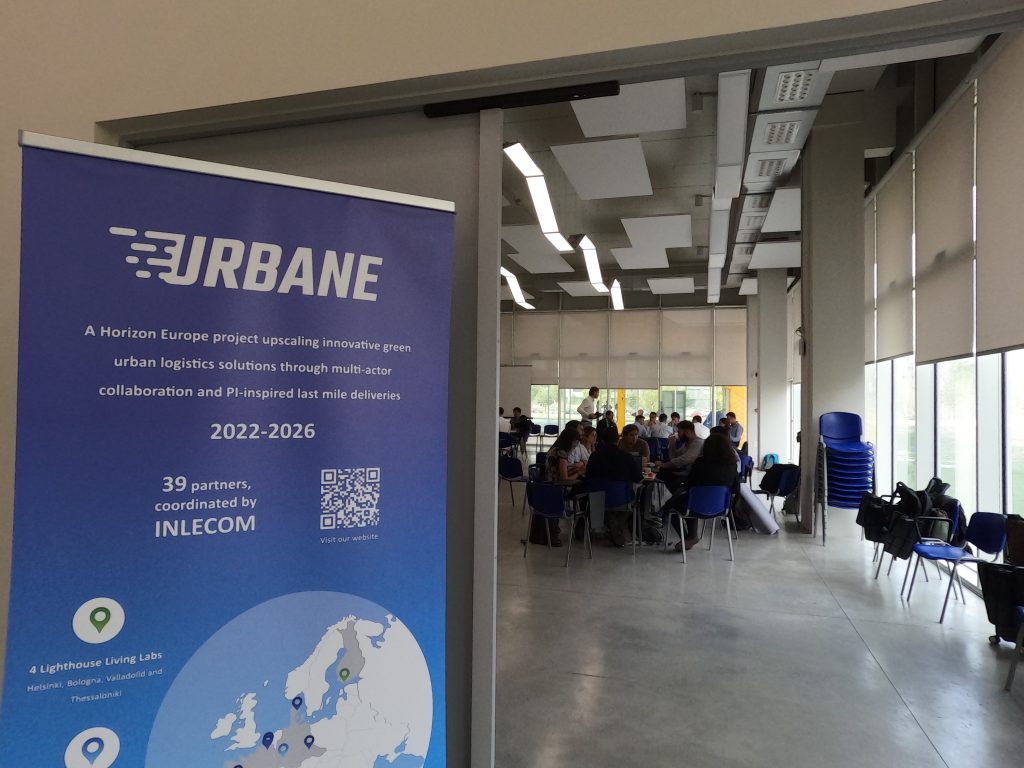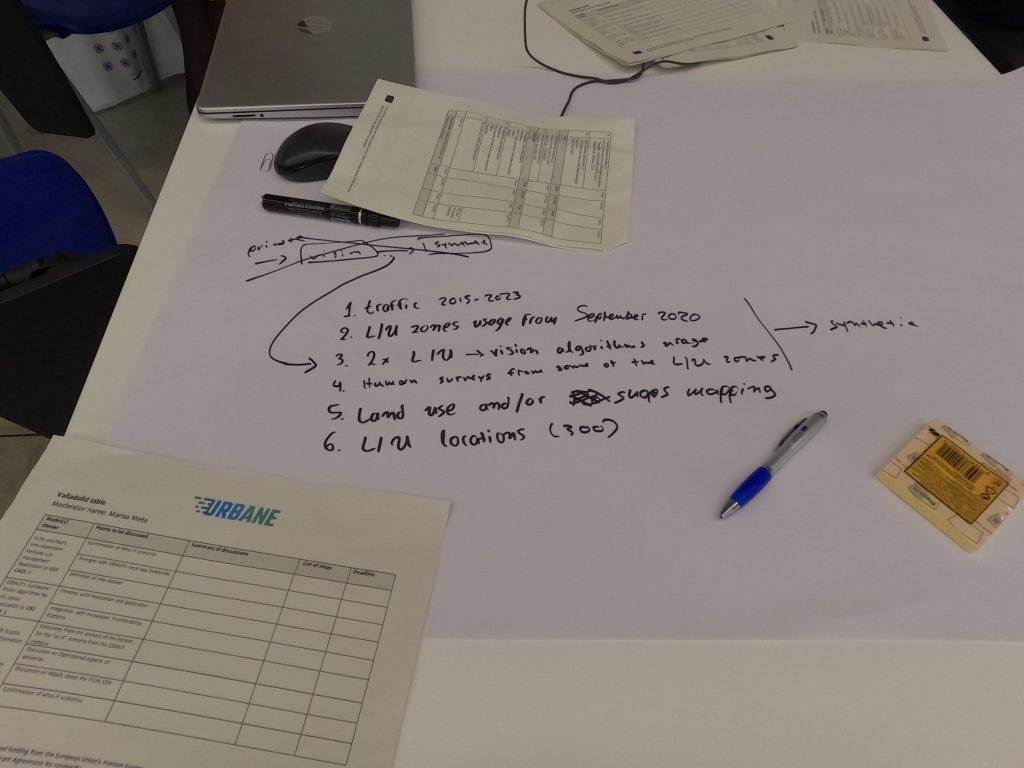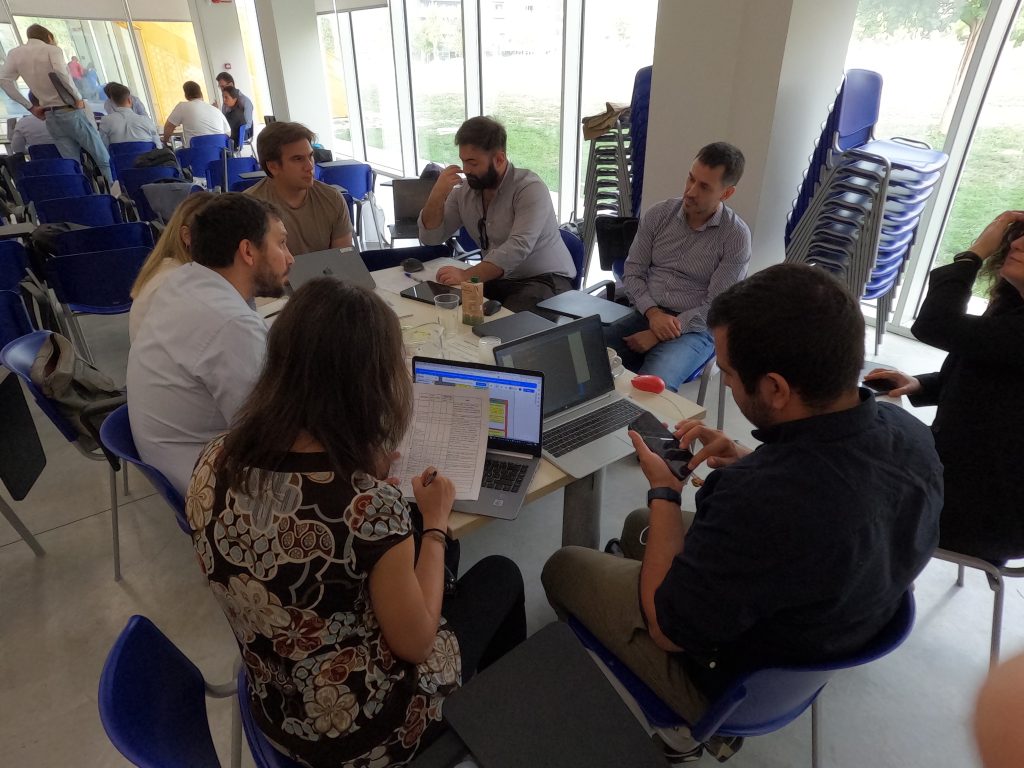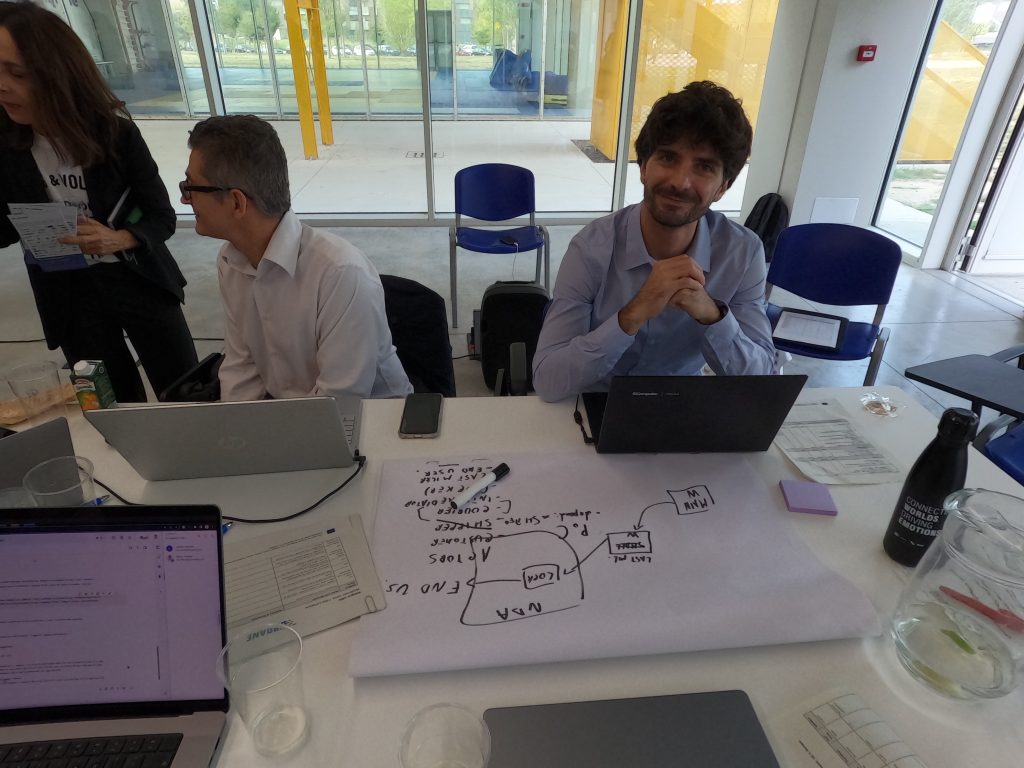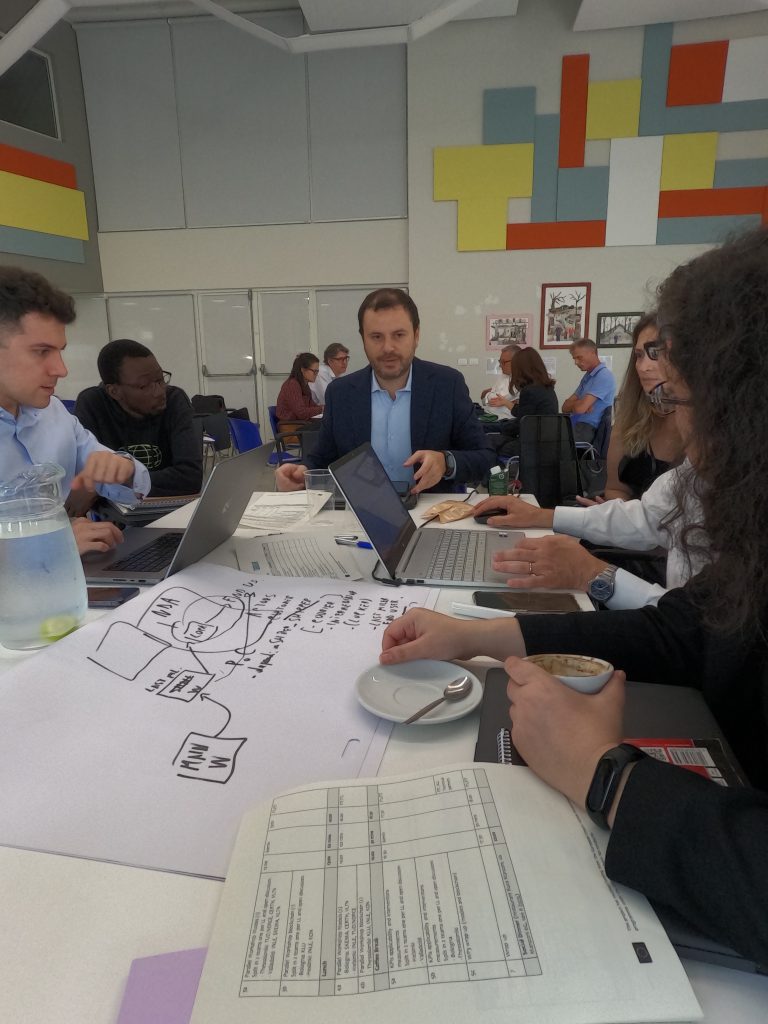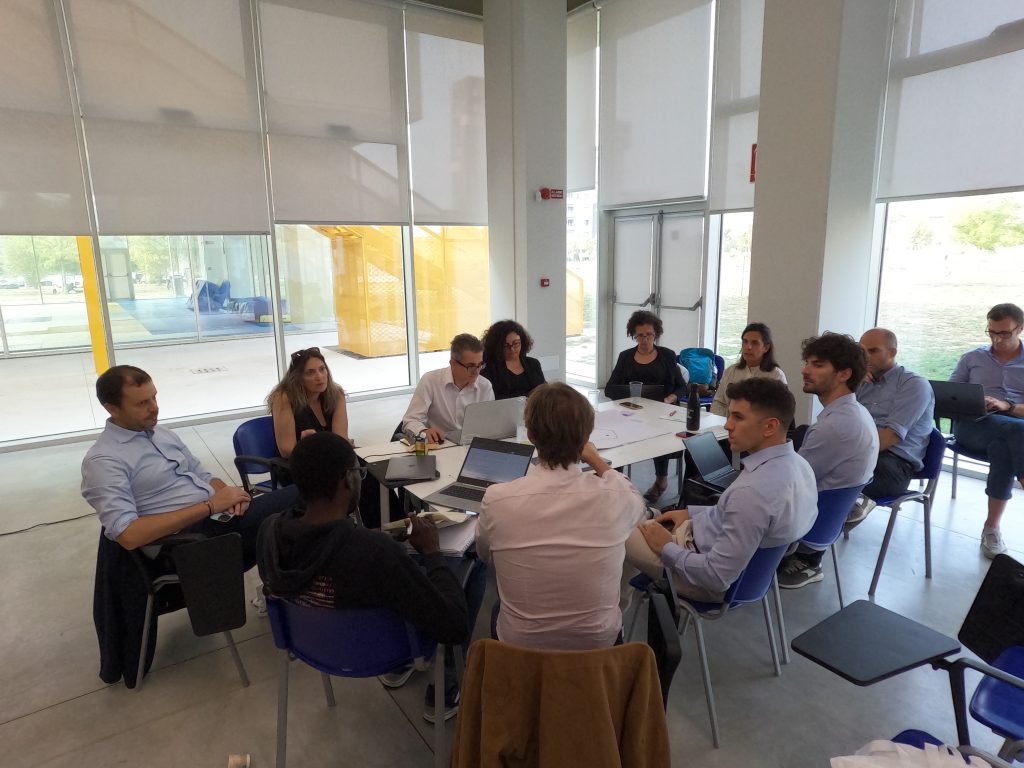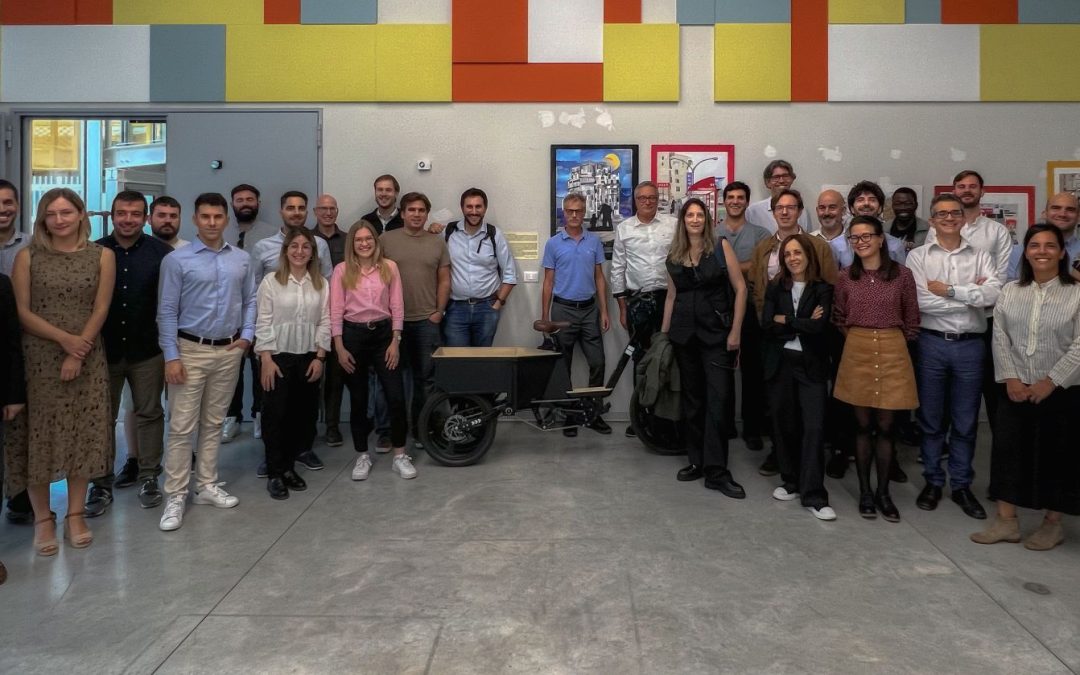On 12-13 October, the Municipality of Bologna, in collaboration with the Institute of Transport and Logistics (ITL) hosted a two-day workshop to align URBANE’s activities between the Four Lighthouse Living Labs (LL) and the Innovation Transferability Platform (ITP).
It brought together key URBANE partners involved in the Lighthouse LLs and technical partners to define the requirements for the development and deployment of digital models and services included in the ITP to facilitate efficient, sustainable, and innovative last-mile urban goods distribution.
Delving into the digital tools
During the workshop, the partners of the LL engaged in in-depth discussions on the specifics of the tools to be developed and how they can empower the LL in realising innovative last-mile logistics.These include Digital Twins, the Impact Assessment Radar, the blockchain and smart contracts and the digital models.
These models open up new avenues for monitoring, predictive analysis, and better estimation of the demand for goods, especially concerning e-commerce and retail businesses. This ability to anticipate and manage demand effectively can lead to more sustainable and efficient urban logistics solutions.
Now, the challenge is to turn these digital tools and their promises into reality!
Central themes of the workshop
During the webinar, four key tools were discussed.
- The concept of the Digital Twin. This cutting-edge technology involves creating a digital replica of the urban environment, allowing for monitoring and simulation of various logistics scenarios. By doing so, it becomes possible to fine-tune last-mile delivery routes, optimise resources, and reduce carbon footprints. The Digital Twin offers a digital playground for stakeholders to test innovative ideas and make data-driven decisions.
- The Impact Assessment Radar provides a comprehensive view of the environmental consequences of last-mile logistics. By better understanding the impact of logistics operations, cities can work towards more sustainable practices and enhance their overall livability.
- The URBANE Models Library will be developed as part of the project as a critical component of the Digital Twinning platform, which utilises last-mile logistics models to provide efficient decision support to stakeholders. It includes Operations Research models, Mathematical Programming models, and Agent-based simulation tools, among other transport planning tools.
- The Blockchain and Smart Contracts. By employing the blockchain and smart contracts, stakeholders can benefit from cost reduction, automation in contract administration, better tracking of data across networks and immutable timestamped logs for non-repudiation of transactions.
One step closer to greening last-mile logistics
URBANE’s ambitious mission is to revolutionise urban last-mile logistics, turning it into a sustainable, efficient, and innovative. With tools like those mentioned above Living Labs across the Europe are poised to make a real impact.
By harnessing these advanced technologies and collaborative efforts, the URBANE project is taking steps toward a future where last-mile logistics will be a smoother, more eco-friendly, and more responsive part of urban life. The success of this project will not only benefit logistics professionals but also contribute to making cities cleaner, more livable, and more sustainable for everyone.
Pictures from the Workshop
